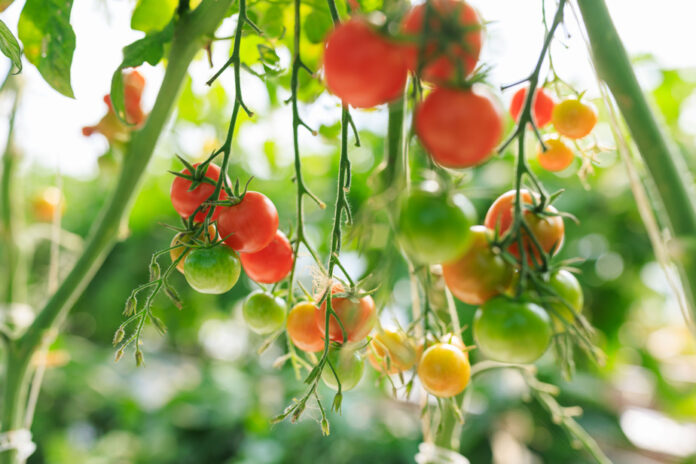In Hochelaga-Maisonneuve, a community business decided to stop being at the mercy of the fluctuating price of vegetables by growing them in town.
“A case of broccoli can have a price change three times in a month and a half! », says Benoist de Peyrelongue, general director of the Hochelaga-Maisonneuve collective kitchen.
There are many reasons why this manager is interested in food prices, because his group’s activities go well beyond meal preparation workshops. The Collective Kitchen is notably responsible for the cafeteria at the CSN head office in Montreal.
However, like everyone else, the group’s management finds it very difficult to follow the fluctuations in the price of food, since it must have approximately the same cost to prepare the meals, both those intended for the community workshops and the cafeteria. the CSN or for its ready-to-eat service.
“For collective kitchen groups as for our other economic activities, it becomes complicated, the fluctuation of prices,” says the general director. It pulls on the elastic. »
We then decided to take control of the elastic, in part.
The Hochelaga-Maisonneuve Collective Kitchen is intensifying its production in the city: this year, the group will exceed one hectare of cultivation in the east of the city. Because the idea is also to intensify the impact in the neighborhood.
As nature was very generous during the summer, management realized that in-house production had a real impact on production costs.
Three main production points are located in the neighborhood: a greenhouse is installed at the Société des alcools du Québec (SAQ), other plantations are made around a building on rue Hochelaga and another production area is located at side of the Scientific Games company.
There is now a team of 10 professional market gardeners working for the company.
“The carrot at the start of the season has the same price as at the end of the season,” proudly calculates Benoist de Peyrelongue, who adds that this allows his chef to better predict production costs.
In addition to being used in their own kitchens, the harvests are sold to restaurateurs on Ontario Street and in neighborhood solidarity markets, in season. About 30% of the vegetables are donated to community organizations.
Since July 2022, the group has been growing on land owned by the SAQ. The state company ceded the land on the side of Highway 25 and provided the water and electricity system to facilitate the cultivation of vegetables and fruit trees. The five-year contract is renewable for another five years. There are now 30,000 square feet planted, discreetly, because the place is not very busy.
The Kitchen’s market gardening work doesn’t stop there. The group took over a large warehouse at 5600 rue Hochelaga, a multidisciplinary building where it set up its vegetable washing and processing plant.
Not far away, the company Scientific Games, which prints lotto tickets, has also joined the movement. Vegetables are already grown there and, soon, a four-season greenhouse will be installed and heated with air recovered from the printing works.
Expansion continues: the Bimbo bakery, also in the neighborhood, must also offer land for cultivation.
According to Benoist de Peyrelongue, the movement is well established and private or public companies that decide to lend space for cultivation no longer do so just for the sake of image. “It gives meaning to work teams,” he says.
The advantage of doing business with a group like his is that it offers a turnkey service to companies which can then carry out activities around cultivation spaces.
The Hochelaga-Maisonneuve Collective Kitchen is renowned in the Montreal community. First, she was at the very beginning of the community kitchen movement – the group was created in 1986. She has since been recognized for her dynamism.
Being at the heart of social diversity, the company is also a privileged witness to the social climate, explains Benoist de Peyrelongue. And now things are changing. Community workshops are popular, more than ever.
“There are people we didn’t see before,” explains Benoist de Peyrelongue. The university student, who goes to school and doesn’t arrive, for example. »
So there are more students in the cooking groups. If there were no labor shortage, there would be workshops in the evenings and weekends to also accommodate working customers.
Next step: set up a community store in the old credit union on Adam Street, where the group is staying. And keep gardening!















